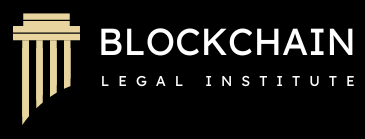Fintech (Financial Technology) refers to the use of technology to provide innovative financial services and solutions. It encompasses a broad range of applications, including mobile payments, online banking, peer-to-peer lending, robo-advisors, blockchain-based platforms, and more. Fintech aims to improve efficiency, accessibility, and convenience in the financial industry by leveraging technology and data.
Decentralized Finance (DeFi), on the other hand, is a subset of fintech that specifically focuses on using blockchain technology and smart contracts to create decentralized financial applications. DeFi aims to eliminate the need for intermediaries, such as banks or financial institutions, and allows users to have direct control over their assets and financial transactions.
Key Differences between Fintech and Decentralized Finance:
- Centralization vs. Decentralization: Fintech applications can be both centralized and decentralized, depending on the specific service and platform. In contrast, DeFi is inherently decentralized, operating on blockchain networks like Ethereum.
- Intermediaries: Fintech solutions may still involve intermediaries in the form of financial institutions or payment processors. In DeFi, intermediaries are eliminated through the use of smart contracts and decentralized protocols.
- Control and Ownership: Fintech platforms may give users more control than traditional financial systems, but they still rely on centralized control by service providers. In DeFi, users have complete ownership and control over their assets, with transactions executed based on predefined smart contract rules.
- Accessibility: Fintech services are often subject to traditional financial regulations and may have geographic limitations. DeFi, being decentralized, allows anyone with an internet connection to access financial services without geographical restrictions.
Legal Implications of Decentralized Finance (DeFi):
- Regulatory Challenges: The decentralized and cross-border nature of DeFi raises regulatory challenges for authorities trying to enforce existing financial laws, ensure consumer protection, and prevent money laundering.
- Smart Contract Risks: Smart contracts are not immune to vulnerabilities, and issues like bugs or coding errors can lead to financial losses. Determining liability and addressing disputes in the case of flawed smart contracts can be complex.
- Data Privacy: DeFi platforms store transactional data on the blockchain, and ensuring data privacy and compliance with data protection laws presents legal challenges.
- Identity Verification: DeFi’s self-sovereign identity concept may raise concerns about verifying user identities for compliance and AML purposes.
- Financial Stability: The lack of centralized oversight in DeFi can impact financial stability, and potential market manipulation or excessive speculation may require new regulatory measures.
- Token Regulations: The issuance and trading of tokens in DeFi platforms can trigger regulatory considerations, especially if tokens are considered securities or subject to other financial regulations.
- Anti-Money Laundering (AML) and Know Your Customer (KYC) Compliance: DeFi platforms need to find innovative ways to comply with AML and KYC requirements without compromising user privacy and decentralization.
As DeFi continues to evolve and gain popularity, governments and regulators worldwide are closely examining its legal implications. Striking the right balance between fostering innovation and protecting users and financial systems will be critical to creating a conducive environment for the growth of decentralized finance.
We encourage you to explore each page of our site to delve into the intricacies of laws, legislative updates, industry news, global conferences, and cutting-edge developments in blockchain, cryptocurrency, and AI. We are constantly updating our pages. We invite you to check back regularly for updates on global laws, legislative changes, and breakthroughs in this area. We’re dedicated to keeping you abreast of the ever-evolving global landscape.
